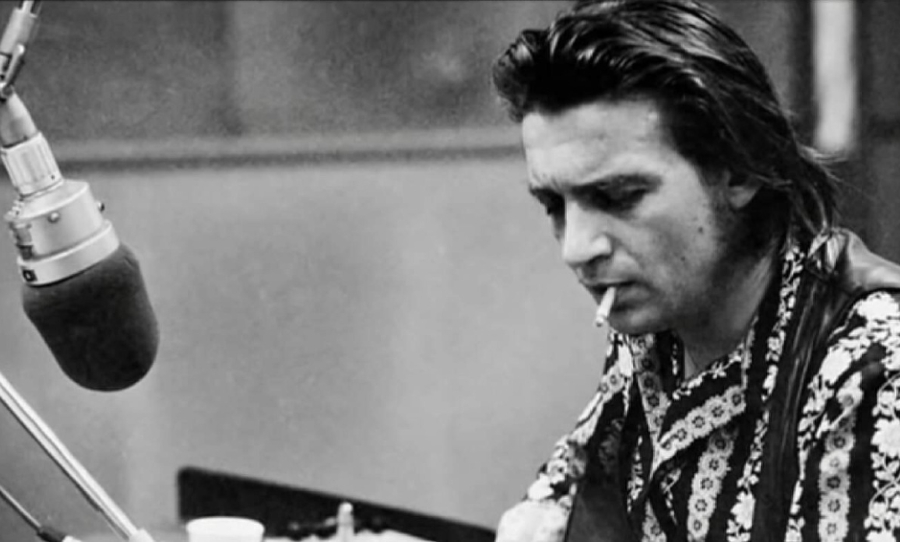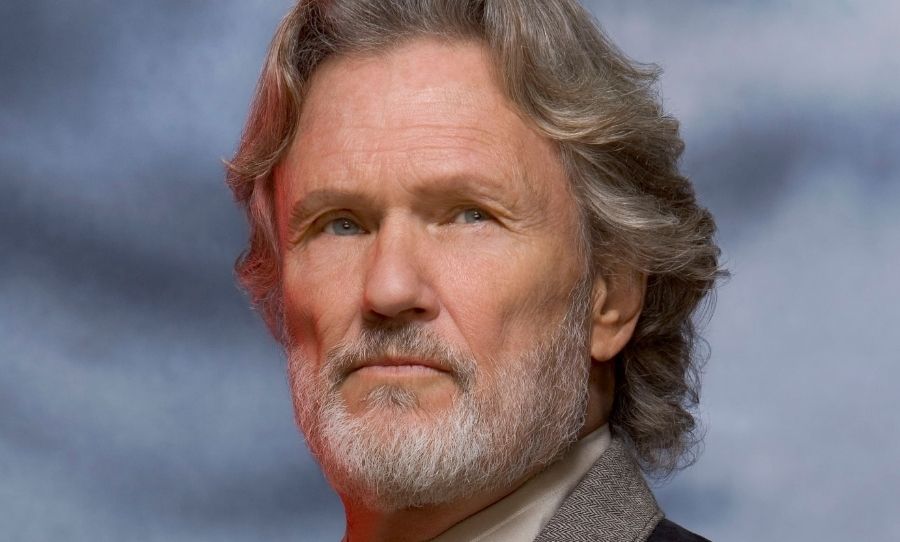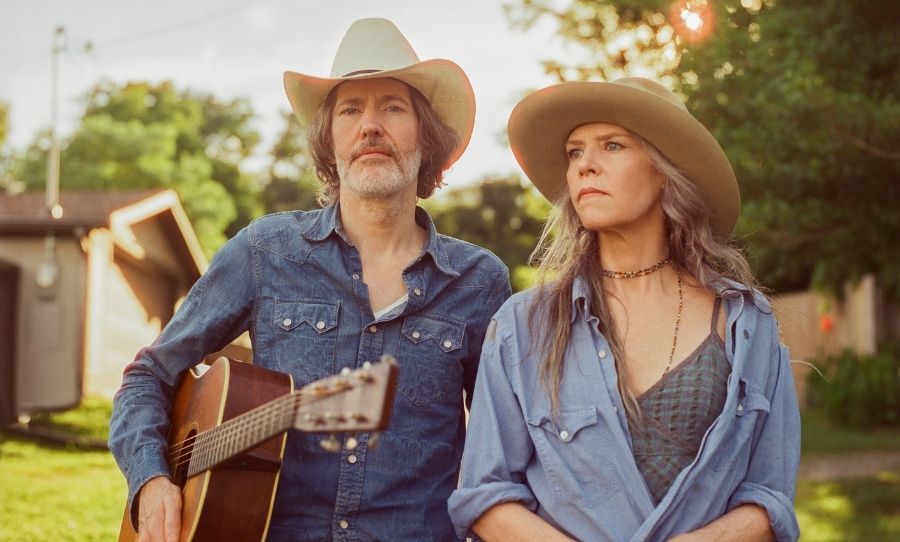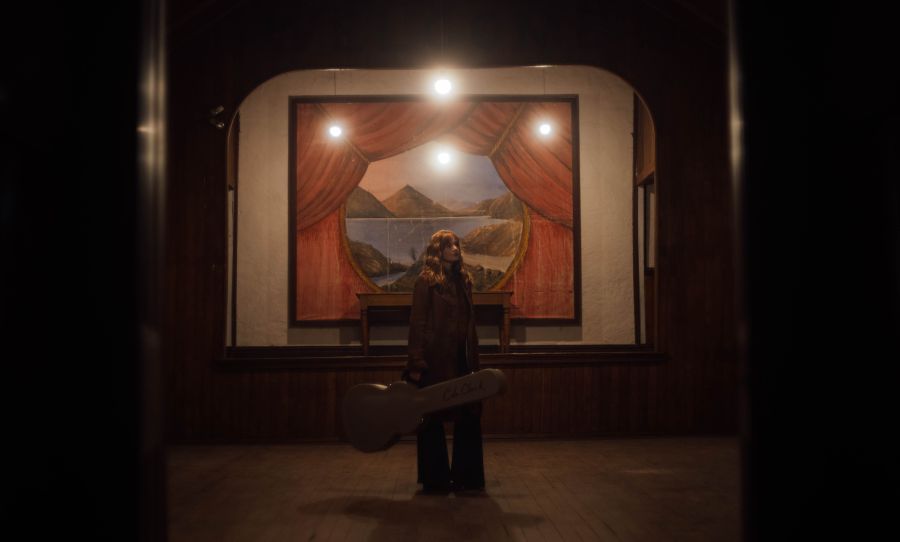Waylon Jennings was a singer, songwriter, and pioneer of the outlaw movement in country music. Let’s have closer look at this musical rebel.
Waylon Jennings lived a life surrounded by music. Learning guitar before his teens and performing on the radio shortly after that, he shared song and stage with the greats like Johnny Cash, Buddy Holly and Willie Nelson.
From his early days as a disc-jockey, jingle writer, bass player, and songwriter, to his later days as an ‘outlaw’, TV composer and Country Music Hall of Famer, he never stopped creating and releasing music. Waylon Jennings’ passion for music and his sincerity shows us a beautiful tale of this outlaw who lives on in song.

Learning music, how to DJ and Buddy Holly’s Band
Growing up in Littlefield, Texas, Waylon Jennings was actually born as Wayland until his mother very quickly changed his name’s spelling after a preacher congratulated her on naming her son after a local church. His love for music started at a very early age as his mother taught him the guitar and his relatives loaned him instruments. Very early on in his teens, he was playing at all the family events, winning local talent nights, and performing live on the local radio stations, which turned into him hosting shows.
The unique spelling of his name seemed to be the beginning of his life as an outlaw to society’s norms, as he dropped out of school early, worked odd jobs and was fired as a DJ for playing two Little Richard records in a row.
It was in this scene of performing and DJing on local country radio stations that he met Buddy Holly. Holly quickly took Jennings under his wing, supplying him with new clothes, organising recording sessions for him and enlisting him to play bass in his band. Jennings released his first single called Jole Blon in 1958 featuring Buddy Holly was on guitar, with limited success.
Jennings was part of the infamous Winter Dance Party Tour, in which a charted flight killed Buddy Holly, Richie Valens and J.P. Richardson (The Big Bopper). In fact, Jennings gave his seat on the ill-fated flight to a flu-ridden J.P Richardson as everyone else was destined to ride on a long cold bus ride to the next show.
After the shock and guilt of not being the infamous flight, Jennings was finding it hard to focus both on his music career and his career as a DJ.
In and out of the ‘Nashville Sound’ and becoming an outlaw
After building his music career over the next few years Jennings finally signed a promising deal to RCA Victor with Chet Atkins in 1965 and the following year saw the chart-topping debut through RCA Victor called Folk-Country. The third single (That’s What You Get) For Lovin’ Me became Jenning’s first top ten single.
In 1966 Jennings featured as a lead actor in a film called Nashville Rebel. The film had moderate success and in the mid-’70s the film was pulled from distribution only to resurface in the mid-1990s.
Whilst Jennings found success with the albums and singles from RCA Victor he felt restricted by the culture of the ‘Nashville Sound’. The ‘Nashville Sound’ is a polished version of country music in which the record companies choose the producer, musicians, material, and even the guitars to be used. Chet Atkins is famous for jingling coins in his pocket and saying, “this is the Nashville Sound” — in other words, the sound of money.
For Jennings, it became questionable as he was used to using his own band (The Waylors). He also had a yearning for producing his own music and felt trapped inside a machine that had no artistic freedom. Nearing the end of 1972, his recording contract was coming to an end, and a sequence of events allowed his manager, Neil Reschen, to renegotiate his contract for a whole lot more money and a whole lot more artistic control.
Following this, Jennings and RCA Victor had their fair share of differences over self-penned material, producers to be used, and his band. Jennings always managed to get his way, and the results spoke for themselves. He had two number-one singles, and a number-one album, Are You Ready For The Country. He even paid producer Ken Mansfield out of his own pocket for this hit record when the label wouldn’t allow it. After this point, Jennings even convinced his label to self-produce his own records.
All of this distrust and constant artistic struggle lead to Jennings becoming a founder in the Outlaw Country movement alongside Willie Nelson and Hank Williams, Jr.
The Outlaw Country movement was a reaction to the polished, assembly-line style music production coming out of Nashville. The Outlaw style stripped away all the orchestral arrangement and formulaic songwriting that was trending within the Nashville country music scene. Instead, it focused on lyrical content about outlaws, opposition to law enforcement, life on the run, and the use and abuse of drugs.
The sincerity of their plight became obvious in 1976 when Wanted! The Outlaws, a compilation album featuring Waylon Jennings, Willie Nelson, Jessi Colter (who was Jennings’ wife at the time) and Tompall Glaser, was released became the first country album to be platinum-certified and quickly reached sales of over one million.
The musical arrangements on Wanted! The Outlaws are simple and solid. Acoustic guitar, electric guitar, pedal steel, organ, harmonica, bass and drums performed and recorded well are the main features of these classic renditions. You feel like you are in the audience of a show, unlike the era of the Nashville Sound: lavishly orchestrated strings, thoughtfully arranged backing vocal and an overall polished sound.
The Dukes of Hazzard, The Highwaymen and a ’90s hit
Waylon Jennings not only wrote the theme song to the hit TV show The Dukes of Hazzard, he also served as the show’s narrator and acted in one episode as himself. The theme song called Good Ol’ Boys became a number one hit on the Billboard Hot Country singles chart in 1980, and may very well be the biggest hit of his career.
The 1980s saw Waylon Jennings, Willie Nelson, Johnny Cash, and Kris Kristofferson form the country outlaw supergroup, The Highwaymen, and they had a number one hit with their Jimmy Webb penned single ‘Highwayman’. Their second album released in 1990 was nominated for a grammy while their final and 3rd album Highwaymen —originally called The Road Goes on Forever — was released in 1995 and produced by star producer Don Was.
The 1980s saw Jennings release a string of solo albums to moderate success, a cameo on the Sesame Street Film Seasame Street presents: Follow That Bird and a gold record with Willie Nelson called WWII.
In 1990 Jennings signed with Epic Records and the first release The Eagle became a top 10 album. The 53-year-old artist was once again proving his ongoing relevance.
Waylon Jennings paved the way for many artists who reject the machine of the entertainment industry. His less-than-law abiding, self-produced attitude is audible in his music. He made music in accordance with his own philosophy — the only way he knew how to.



